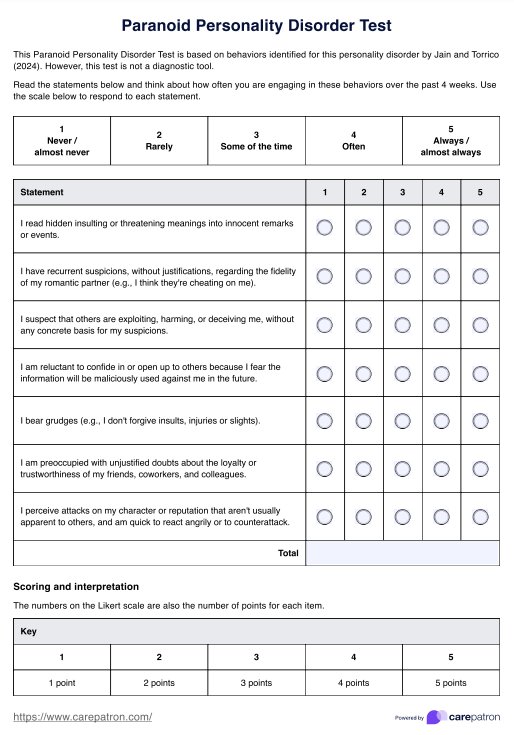No, our PPD test is not a diagnostic tool, and only a qualified and trained mental health professional can make a complete diagnosis utilizing standardized tests. This test only attempts to identify the seven traits of PPD: pervasive distrust and suspicion of others; preoccupation with unjustified doubts about the friends' loyalty or trustworthiness; reluctance to confide in others; interpretation of benign remarks or events as threatening or demeaning; persistent grudges; perception of attacks on character that are not apparent to others; and recurrent suspicions regarding the fidelity of a romantic partner.

Paranoid Personality Disorder Test
Gain insights into paranoid personality behaviors and traits with accurate results from our quick and focused Paranoid Personality Disorder Test.
Paranoid Personality Disorder Test Template
Commonly asked questions
Living with someone who has paranoid personality disorder can be extremely challenging due to their pervasive distrust and suspicion, which often leads to strained relationships and emotional turmoil for those around them. It requires patience, clear communication, and the establishment of boundaries to manage the stress and maintain a sense of personal well-being.
If paranoia is left untreated, it can lead to significant impairments in various aspects of life, including relationships, work, and social interactions, often resulting in isolation and distress. Additionally, untreated paranoia may escalate into more severe mental health issues, such as depression or psychosis, and increase the risk of aggressive behavior or legal problems due to misinterpretations of others' intentions.
EHR and practice management software
Get started for free
*No credit card required
Free
$0/usd
Unlimited clients
Telehealth
1GB of storage
Client portal text
Automated billing and online payments











